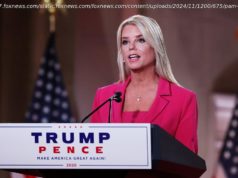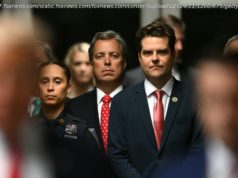Expectations of who will gain, and who will lose, from the president-elect’s second term are already moving markets.
Donald Trump is a crypto bro who’s going to cut taxes and regulations, loves big banks and corporate mergers, doesn’t care about deficits, loves oil and hates wind and solar, and might actually let RFK Jr. do some kooky health stuff. That, roughly speaking, is the picture of Trump that you get when you look at how markets reacted this week to his reelection as president of the United States. In other words, the markets are saying that he’s pretty much who many of us thought he was.
The immediately obvious conclusion to draw from the fact that the stock market spiked on news of Trump’s win—with all three major indexes hitting record highs—is that traders think he’s going to be very good for business. But traders were not simply buying stocks across the board; they were pouring money into assets they think will benefit from the next Trump presidency, while punishing those they think will be hurt by it.
The sheer number of sectors—and individual stocks—that traders seem to believe will be affected by Trump winning is striking. It reflects Trump’s stated intention and willingness to use executive power in an unfettered way. So what we’re seeing is the traders scrambling to try to read Trump’s mind—because they need to figure out how his whims might shape the fate of multibillion-dollar companies.
Some version of this market response happens after every election: Government policy has a big impact on business outcomes, and traders’ job is to anticipate that impact on their holdings. It’s also worth remembering that the stock market rose sharply in 2020 after Joe Biden’s victory looked assured, so some of this week’s rise is probably the result of traders’ relief that we’re not headed for months of legal challenges and conflict over who won. But going by what he has said over the course of the campaign, Trump has very ambitious plans.
Most starkly, he has promised to impose across-the-board tariffs on almost all imported goods, and 60 percent tariffs on Chinese imported goods in particular, and to deport millions of undocumented immigrants. Much of this Trump can direct on his own account, without seeking congressional approval.
The stock market is therefore working overtime to parse his various campaign promises: which it should take seriously and which it can ignore. For instance, one promise that traders seem to be comfortable ignoring is Trump’s vow to let Elon Musk slash trillions of dollars in federal spending. (Musk has claimed, improbably, that he can cut “at least $2 trillion,” mainly by getting rid of government waste.) If traders actually believed that was going to happen, the market would have sold off steeply, because government budget cuts of such magnitude would send the economy into a deep recession.
Instead, the market believes Trump is going to do the opposite: Far from embracing austerity, Trump is likely to cut taxes and increase spending, pouring more money into the economy. That would increase the risk of inflation—ironically, given the fact that Trump won in large part because voters were angry with Biden and Kamala Harris over high prices—which is why, on the first day of trading after Trump’s election, interest rates on 30-year Treasury bonds rose by their biggest margin in more than two years.






